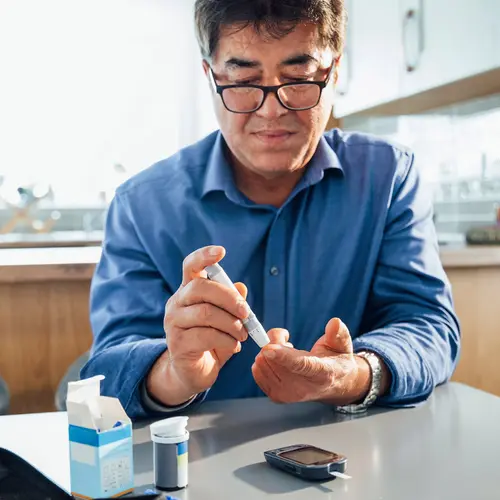Cardiogenic shock (CS) can happen with advanced heart failure – when your heart can’t pump enough blood to meet your body’s needs. It’s a potentially deadly medical emergency, and you’ll need treatment at a hospital right away. Only about half of the people who immediately get medical help survive.
It’s possible to have a history of atrial fibrillation (AFib) -- an irregular heartbeat -- before you have cardiogenic shock. But research shows you’re more likely to develop it during treatment or recovery from CS.
What Causes You to Have Both Conditions?
In some cases, a heart attack (also called acute myocardial infarction) causes cardiogenic shock. About 5%-10% of people with a heart attack have CS. It’s the top cause of death for those who have a heart attack.
AFib is common among heart attack-related cases of CS. Other causes of AFib after cardiogenic shock include:
In some cases, medicines that are used to treat cardiogenic shock can trigger AFib.
But AFib can also cause CS. Basically, if you have AFib and the bottom two chambers of your heart, the left and right ventricles, beat very fast, your heart might fail to pump blood as effectively. This can lead to cardiogenic shock.
What Are the Common Risk Factors for AFib and Cardiogenic Shock?
The two conditions also share certain common risk factors such as:
- High blood pressure
- Coronary artery disease
- Heart failure
- Older age
- Obesity
- Diabetes
Other lifestyle habits like smoking, drinking alcoholic beverages, and drug use can raise your chances of both conditions.
How Can You Manage AFib and Cardiogenic Shock Together?
Cardiogenic shock can be deadly. Your life depends on how fast you get medical help. The longer your body remains in shock, the greater your odds for organ damage from lack of oxygen-rich blood supply. This can lead to death.
Watch out for symptoms such as:
- Trouble breathing
- Sweating or feeling clammy
- Fast or irregular heartbeat
- Feeling weak, lightheaded, or anxious
If you notice these symptoms, call 911 and ask for an ambulance right away. You can start on treatments on your way to the hospital and this can increase your odds of survival.
Once you get to the hospital, treatment might continue in the emergency room or ICU. This may include:
- Oxygen to help your breathe better
- Medications given through an IV. This will help pull away excess fluid, improve blood flow, and improve or support your heart function.
The medicines you get may include:
- Dobutamine
- Dopamine
- Epinephrine
- Furosemide
- Milrinone
- Nitroprusside
- Norepinephrine
- Vasopressin
To watch the pressure inside your heart, your care team may also use a device called a Swan-Ganz catheter. They may also give you an electric shock to help your heart get back to a normal rhythm.
When you get to the hospital, your doctor will do a thorough check to see what might be causing your heart problems. One study looked at 686 patients with cardiogenic shock during their hospital stay. The study found that around 20% of the people had AFib along with CS. Among them, around 60% had AFib on arrival, while 40% developed it during their CS treatment. Overall, the people with AFib were older than others in the study who didn’t have it.
Research shows that some of the IV medications used to bring CS symptoms under control such as dopamine or dobutamine can cause your heart rate to increase. This can start or trigger AFib. If you have both conditions, your doctor will have to watch the dose carefully to avoid this.
If you have AFib or are on the verge of developing it, other medications like norepinephrine or a combination of drugs might work better for you and can help you avoid AFib or other heartbeat problems.
How Does AFib Affect Cardiogenic Shock Treatment and Recovery?
If you have AFib along with cardiogenic shock, research shows it can have some impact on your recovery. This is the case whether you already had it when you were admitted to the hospital or you developed it afterward.
AFib can slow down your heart’s ability to pump properly and might affect blood flow. But studies have found that it doesn’t affect your odds of survival within 30 days after a cardiogenic shock.
Research has found that if you have AFib, your hospital stay will likely be longer. You’ll also need more medical resources like medications and skilled care during treatment and recovery than those who don’t have this complication.

